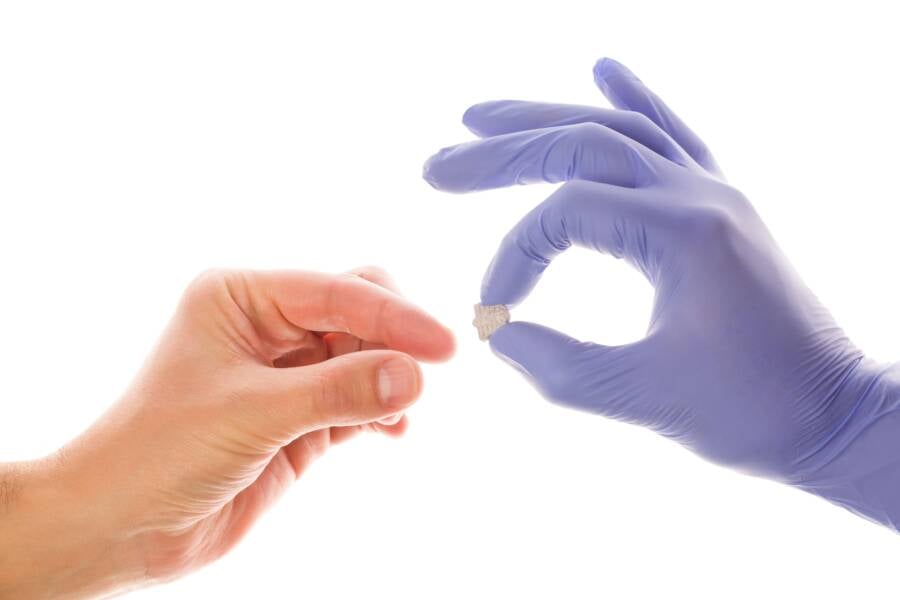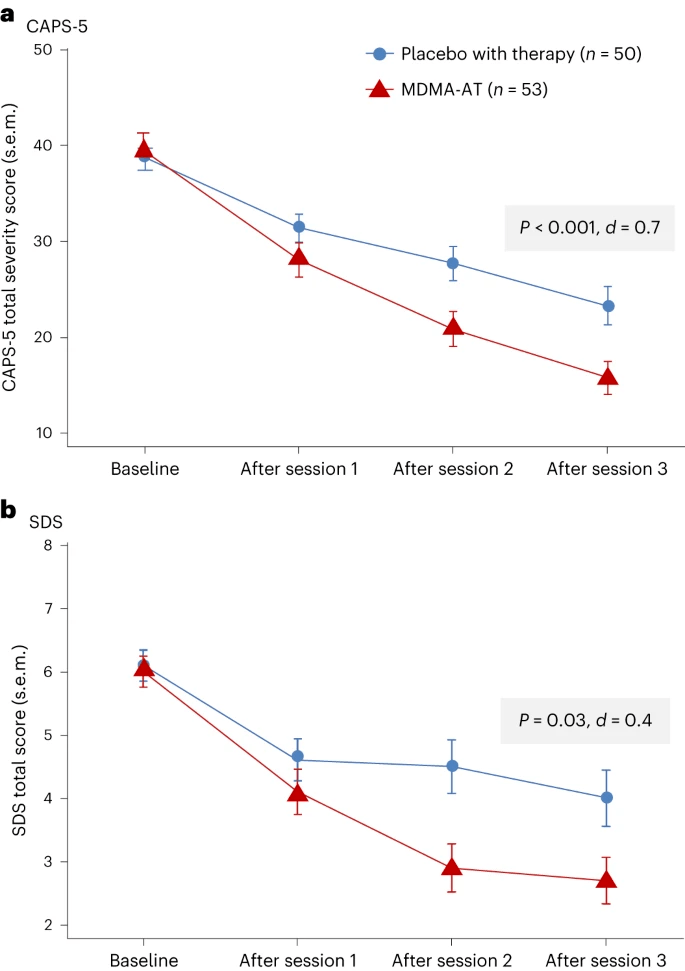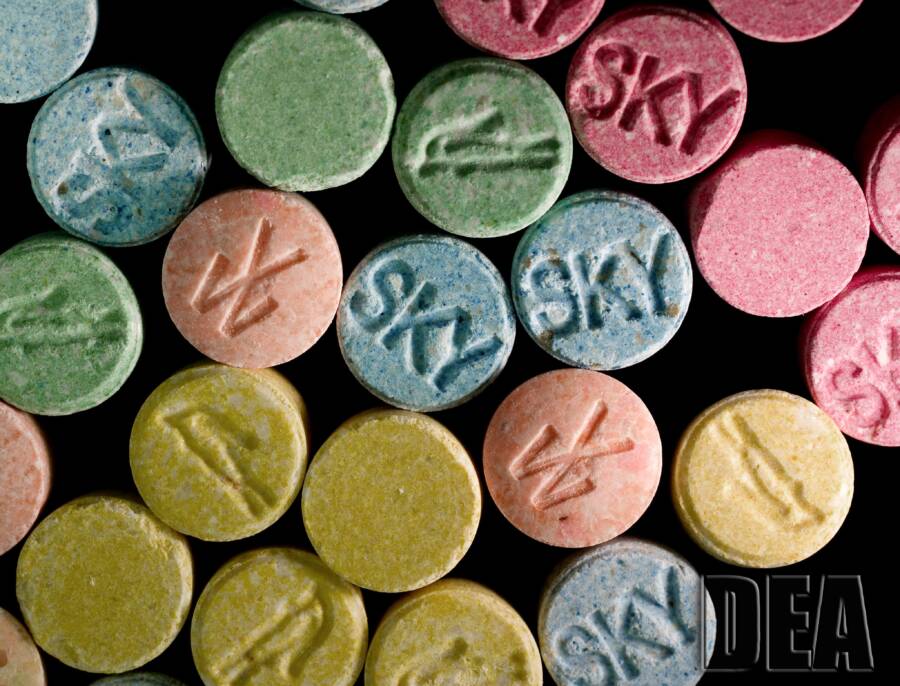The drug was so effective that a majority of patients treated with the Schedule 1 drug reportedly no longer met the criteria for PTSD diagnosis.

Michal Moravcik / Alamy Stock PhotoThe study argues that the restricted drug should be made available to some patients in conjunction with talk therapy.
A new study claims that MDMA could provide a significant benefit to people suffering from treatment-resistant PTSD.
MDMA, also known as ecstasy or molly, is a stimulant and psychedelic that can produce several euphoric effects that the study argues could be used to help PTSD patients.
Researchers believe MDMA-assisted therapy in people with post-traumatic stress disorder, or PTSD, could provide a “significant reduction” in PTSD symptoms.
The study, published in Nature and conducted by the Multidisciplinary Association for Psychedelic Studies’s (MAPS) Public Benefit Corporation, consisted of 103 participants of varying ages, races, ethnicities, and genders.
53 participants received MDMA in addition to therapy; the other 51 received a placebo. Neither the patients nor the therapists involved in the study knew which patients received MDMA and which received a placebo.
By the end of the study, 87 percent of the patients who received MDMA reported a significant reduction in PTSD symptoms and severity in relation to their baseline assessment at the beginning of the study, compared to 69 percent in the placebo group.
Additionally, a majority of patients who received MDMA — 71 percent — saw so much improvement they no longer met the clinical standards for a PTSD diagnosis.
“MDMA-assisted therapy would be the first novel treatment for PTSD in over two decades,” said Berra Yazar-Klosinski, the senior author of the study and the chief scientific officer at the company, in an interview with The New York Times. “PTSD patients can feel some hope.”
According to Inverse, six out of every 100 people in the U.S. will develop PTSD at some point in their lives. Talk therapy and trauma-focused psychotherapy are considered the “gold standard” for PTSD treatment — but 50 percent of people with PTSD don’t see any improvement.
The study found MDMA helps with PTSD treatment by influencing serotonin and dopamine levels and decreasing activity in the parts of the brain associated with fear.

Multidisciplinary Association for Psychedelic StudiesThe study found that participants who received MDMA experienced a significant reduction in symptom severity.
In what is believed to be a first in psychedelic treatment studies, approximately half of the participants in the study identified as ethnically or racially diverse.
“Due to disparities in trauma exposure, gender-diverse and transgender individuals, ethnoracial minorities, first responders, military personnel, veterans and victims of chronic sexual abuse have a disproportionately higher risk of developing PTSD,” the study states. “However, these diverse populations are historically underrepresented in clinical trials.”
“We worked long and hard to get a study population that’s more in line with the general population with PTSD,” said Jennifer Mitchell, a neuroscientist at the University of California San Francisco and lead author of the study. “This isn’t just privileged people with lots of time and resources.”
MDMA is classified as a Schedule 1 drug by the DEA, having been criminalized in 1985. Drugs classified as Schedule 1 have “high potential for abuse, no currently accepted medical use in treatment in the United States, and a lack of accepted safety for use under medical supervision,” according to the DEA.
However, groups like MAPS have been advocating for the use of MDMA-assisted therapy since 1986, just one year after its criminalization. Reportedly, hundreds of therapists in North America and Europe prescribed MDMA in therapy in the 1970s and early 1980s.
“The big tragedy to point out is that it was pretty clear in the late 1970s and early 1980s that MDMA had incredible therapeutic potential,” said Rick Doblin, founder of MAPS. “All the suffering since then, because MDMA was criminalized, is enormous.”
People with PTSD die from suicide at a rate several times higher than those without PTSD, even after accounting for demographics and other psychiatric factors, such as depression.

World History Archive / Alamy Stock PhotoMDMA, also known as ecstasy or molly, was initially developed to treat depression, but has since been classified as a Schedule 1 illicit substance.
“My clinical experience is that too many men and women have lost hope with conventional treatments and therapies and feel the only ‘out’ for them is committing suicide,” said Stephen Xenakis, a psychiatrist and the executive director of the American Psychedelic Practitioners Association. “We need to do something more to help them, and MDMA-assisted therapy offers a new, potentially lifesaving option when done thoughtfully and professionally.”
While MDMA remains a Schedule 1 drug, the Food and Drug Administration (FDA) granted it breakthrough status in 2017, meaning it could be used in studies and clinical trials. According to a statement from the Department of Health and Human Services last year, the FDA is anticipated to approve the drug for assisted therapy by mid-2024.
If the federal government approves the use of MDMA for treatment of PTSD, it will need to be declassified as a Schedule 1 drug by the DEA and approved by individual states. Researchers are optimistic, and MAPS is already in the process of contacting insurance companies, Medicare, and Medicaid to ensure coverage and advocate that the treatment be economically accessible.
“It feels a bit too early to really celebrate. But it’s been a long, long process, and it’s amazing that we are this far,” Doblin said.
After reading about the use of MDMA to treat PTSD, read about similar efforts to decriminalize psilocybin, or “magic mushrooms,” to treat PTSD and depression. Or, read about five illegal drugs, including MDMA, that used to be prescribed by doctors as “miracle drugs.”





